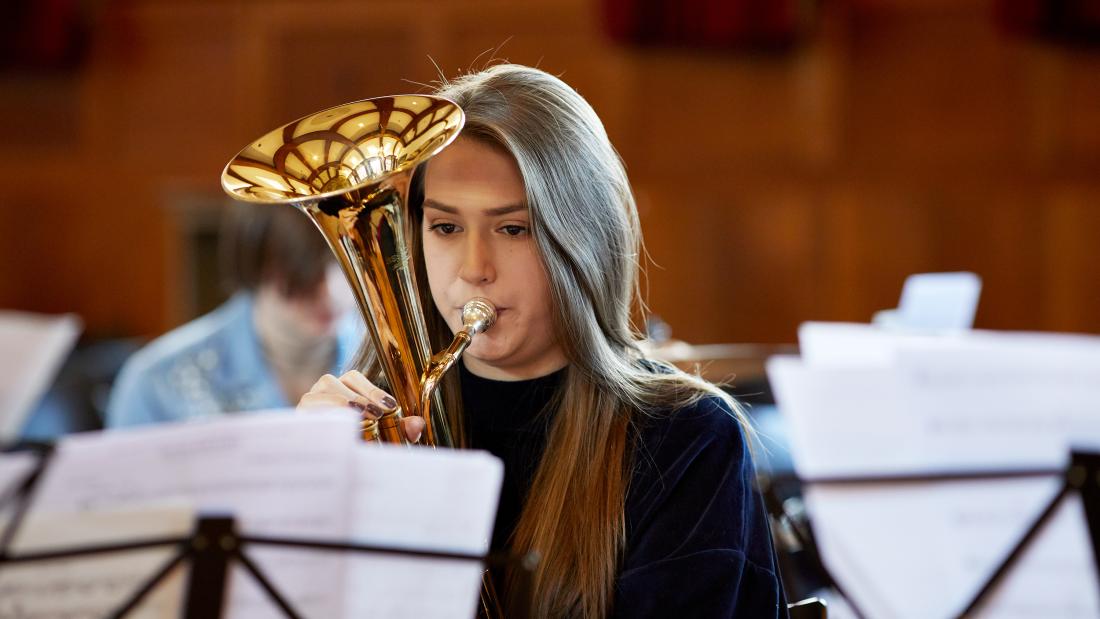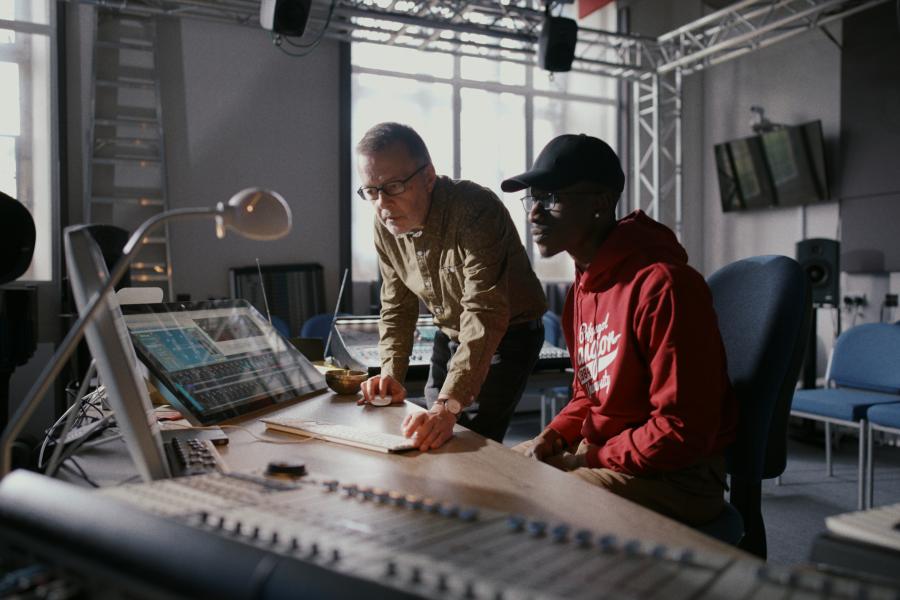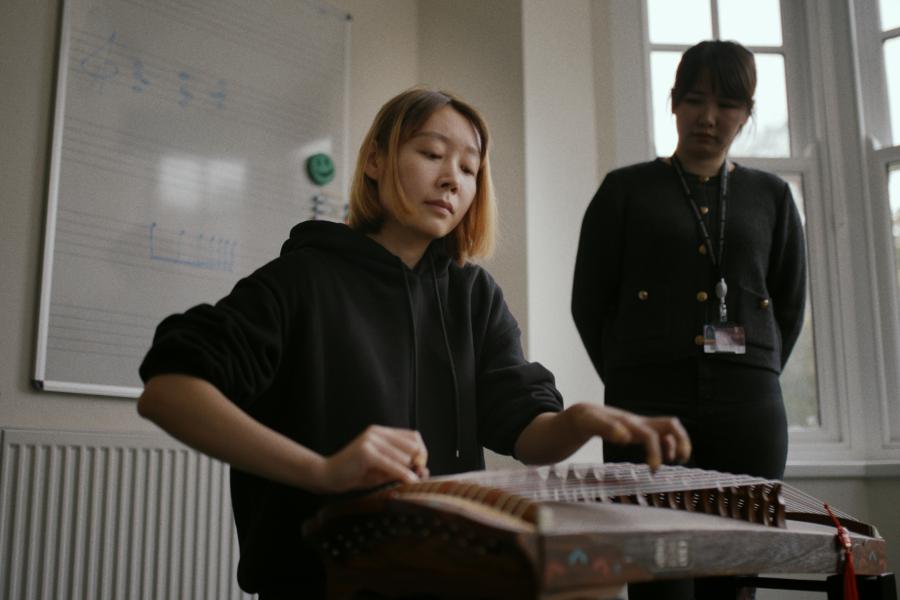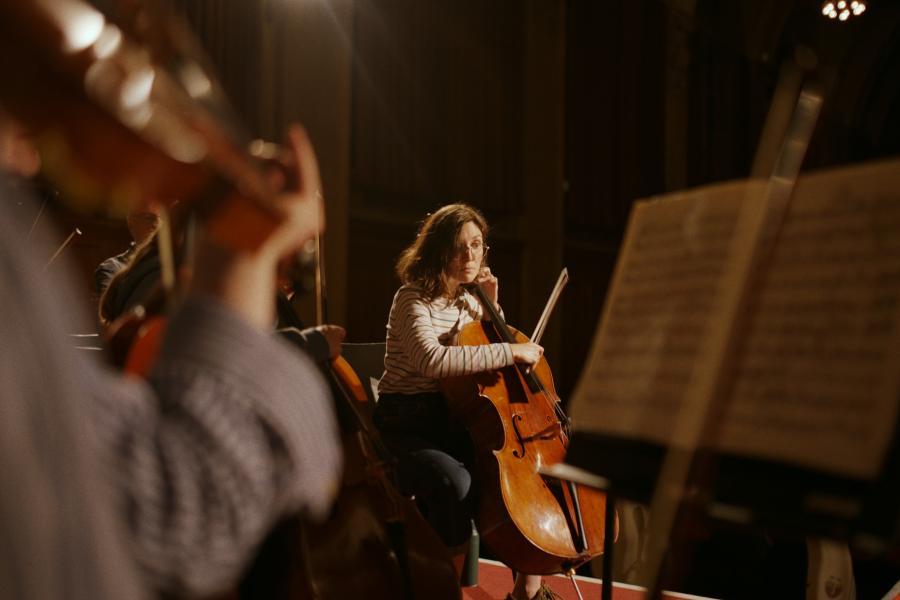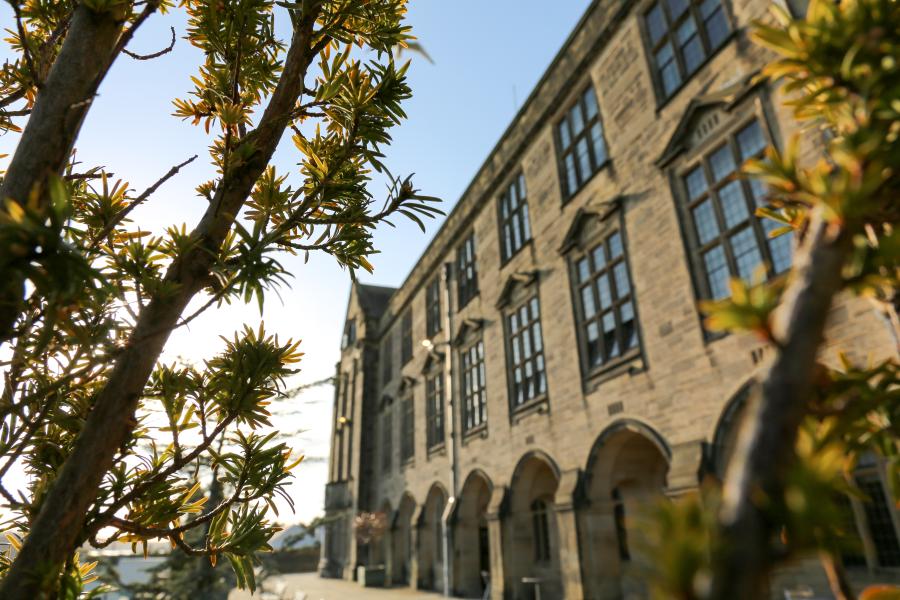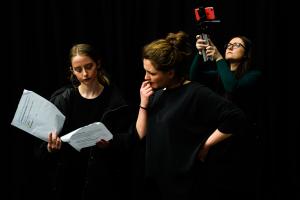Find the right Music course for you
I like the fact that as a musician you aren’t limited to performance only. I’m able to tailor my degree to what I want to do through the modules that I take; therefore, having the opportunity to make the most of my degree.
Do you have a question about life as a Bangor University student? Our ambassadors will be happy to help you find the answer.
They can tell you more about studying here, about the amazing Clubs and Societies we have, and how they made friends and settled in to life at university.
If you have any questions about the course, our lecturers are on hand to help. Below are some examples of frequently asked questions. Can you think of any more?
- What are the qualities of a successful Music student at Bangor?
- How can I prepare myself to study Music at Bangor?
- How will I know that Music at Bangor is the right choice for me?
Our Research in Music
Our staff conduct research and provide PhD supervision in Musicology, Music Education, Composition, Performance and Health and Well-Being. Within these broad designations, we have key strengths in Early Music; 20th and 21st century Music; Music Editing; Welsh Music; Acousmatic and Electroacoustic Composition; Film Music; Sonic Arts; Contemporary Performance; Interactive Performance with Electronics.
Most staff members are active in more than one field and often engage with research projects with colleagues working in other disciplines.
You may also be interested in these related subject areas.
You may also be interested in these related subject areas.

